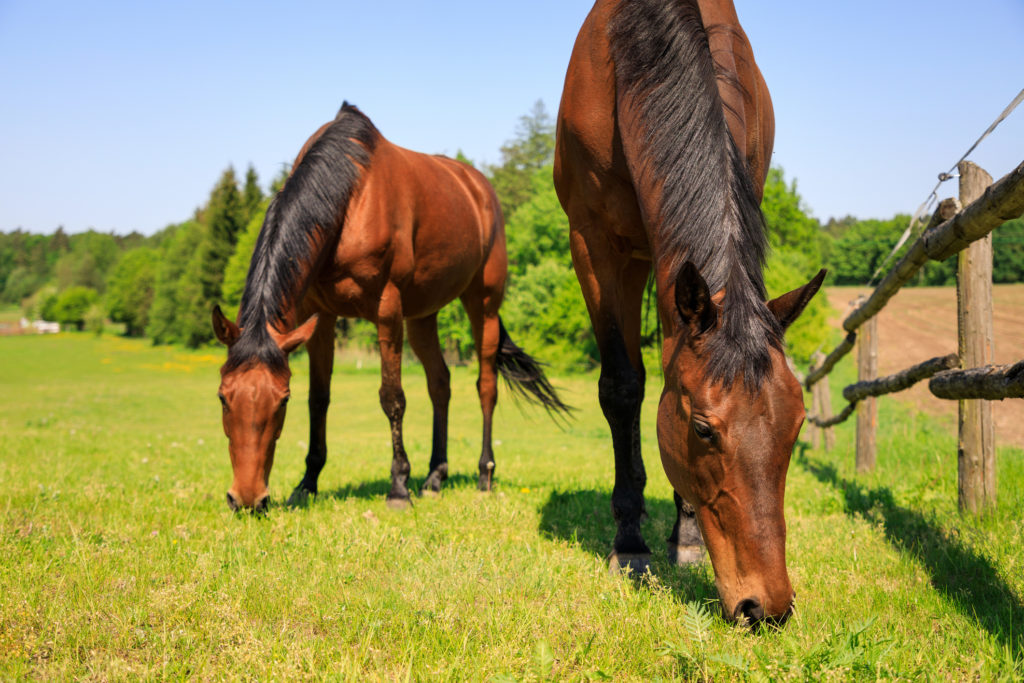
Non-Drug Treatments for Equine Metabolic Syndrome
Drs. Vern Dryden and Amanda Adams offer advice for managing EMS horses and selecting supplements.

Drs. Vern Dryden and Amanda Adams offer advice for managing EMS horses and selecting supplements.

Dr. Amanda Adams explains the difference between equine metabolic syndrome and insulin resistance.

Learn more about nutrition’s role in the development and management of equine endocrine disorders and how you can reduce your horse’s risk of developing a secondary disease.

Learn about keeping OTTBs healthy and happy as they move into new disciplines. We’ll cover feeding, vet care, handling, and more!

Older horses tended to have higher insulin secretory responses to glucose compared to adult horses, researchers found.

A correct diet can make these sometimes-debilitating conditions manageable.

Do all the supplements, concentrates, and forages on the market have you confused about what’s best to feed your horse? Learn what your horse really needs to eat from equine nutritionist and consultant, Dr. Clair Thunes.

Learn the risks of equine metabolic syndrome (EMS) and get management and treatment tips in this easy-to-follow visual guide.

Dr. Amanda Adams shares information about how nutrition can impact the immune responses of geriatric horses.

Do you love draft horses? Learn about 10 of their unique health and management needs in this special report.
Dealing with the post-laminitic horse has its challenges, but it is also rewarding when you’re able to see your horse living a good quality of life and returning to his or her former profession.

Miniature Horses are more susceptible to some health problems than their larger counterparts.

Equine Insulin Resistance is a reduction in sensitivity to insulin that decreases the ability of glucose to be transported into the body’s cells from the bloodstream.

The term “easy keepers” refers to horses and ponies that maintain or gain weight on a minimum amount of food.

Antioxidants (which include vitamins E, C, and A, selenium, glutathione, lipoic acid, coenzyme Q10, and isoflavins) act to stabilize free radicals and halt oxidative damage. Here’s a look at how they function.
In this article, we’ll discuss some of the specific causes of exertional rhabdomyolysis (ER) or tying-up, along with methods that can be used to prevent repeat episodes. of tying-up in horses. predisposed to recurrences.
Stay on top of the most recent Horse Health news with
"*" indicates required fields